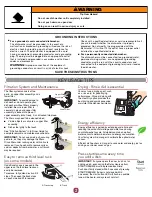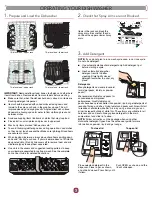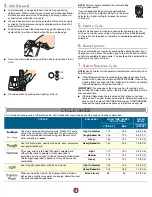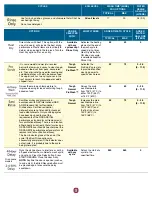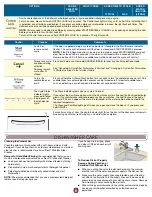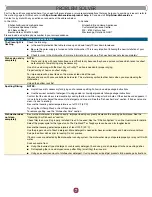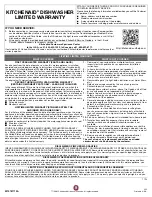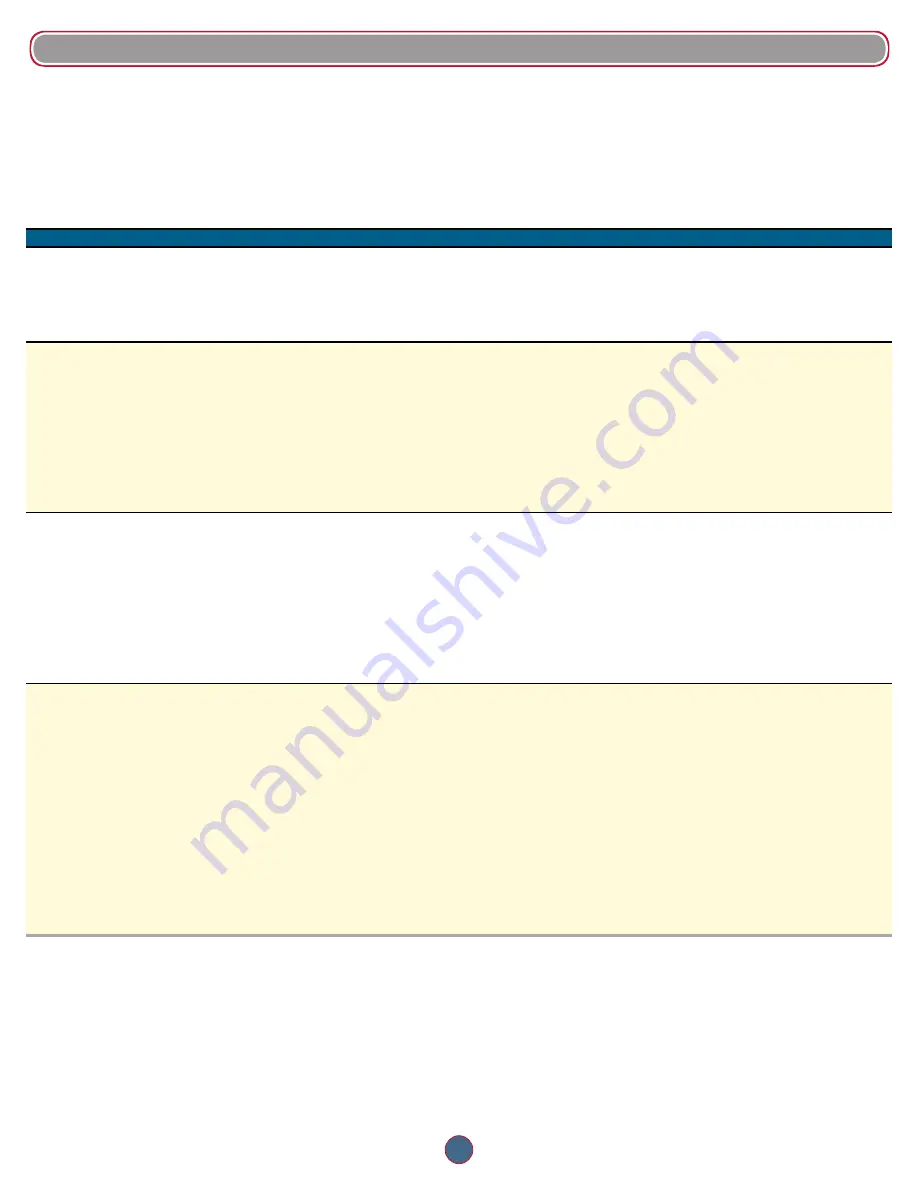
7
First try the solutions suggested here. If you need further assistance or more recommendations that may help you to avoid a service call, refer to
the warranty page in this manual or visit
https://www.kitchenaid.com/product_help.
In Canada, visit
http://www.kitchenaid.ca
Contact us by mail with any questions or concerns at the address below:
In the U.S.A.:
KitchenAid Brand Home Appliances
Customer eXperience Center
553 Benson Road
Benton Harbor, MI 49022-2692
In Canada:
KitchenAid Brand Home Appliances
Customer eXperience Centre
200 - 6750 Century Ave.
Mississauga, Ontario L5N 0B7
Please include a daytime phone number in your correspondence.
PROBLEM SOLVER
If you experience
Recommended Solutions
The Clean light is
flashing
Check the following:
■
Is the overfill protection float able to move up and down freely? Press down to release.
■
Be sure the water supply is turned on to the dishwasher. (This is very important following the new installation of your
dishwasher.)
■
Check for suds in the dishwasher. For more information on suds, see “Dishwasher does not clean completely.”
Dishes do not dry
completely
NOTE:
■
Plastic and items with nonstick surfaces are difficult to dry because they have a porous surface which tends to collect
water droplets. Towel drying may be necessary.
Use of rinse aid along with the Heat Dry or ProDry™ option is needed for proper drying.
Proper loading of items can affect drying.
For improved results, place items on the more slanted side of the rack.
Glasses and cups with concave bottoms hold water. This water may spill onto other items when you are unloading the
dishwasher.
Unload the bottom rack first.
Spotting/Filming
NOTES:
■
Liquid rinse aid is necessary for drying and to reduce spotting. Follow rinse aid package instructions.
■
Use the correct amount of detergent. If using powder or liquid/gel products follow package instructions.
Confirm that the cloudiness is removable by soaking the item in white vinegar for 5 minutes. If the cloudiness disappears, it
is due to hard water. Adjust the amount of detergent and rinse aid. See the “Dishwasher Care” section. If it does not come
clear, it is due to etching.
Be sure the incoming water temperature is set at 120°F (49°C).
Try using the Hi-Temp Wash or Sani Rinse options.
To remove spotting, see the “Dishwasher Care” section.
Dishwasher does
not clean
completely
Be sure the dishwasher is loaded correctly. Improper loading can greatly decrease the washing performance. See the
“Operating Your Dishwasher” section.
Check filter to ensure it is properly installed. Clean it if needed. See the “Filtration System” in on-line User Guide for details.
Select the proper cycle for the type of soils. The ProWash™ or Tough cycle can be used for tougher loads.
Be sure the incoming water temperature is at least 120°F (49°C).
Use the proper amount of fresh detergent. More detergent is needed for heavier-soiled loads and hard water conditions.
Scrape food from dishes prior to loading. Do not prerinse.
If foam or suds are detected by the dishwasher sensing system, the dishwasher may not operate properly or may not fill with
water.
Suds can come from:
■
Using the incorrect type of detergent, such laundry detergent, hand soap, or dish detergent for hand washing dishes.
■
Not replacing the rinse aid dispenser cap after filling (or refilling) the rinse aid.
■
Using an excessive amount of dishwasher detergent. If using powder or liquid/gel products follow package instructions.


